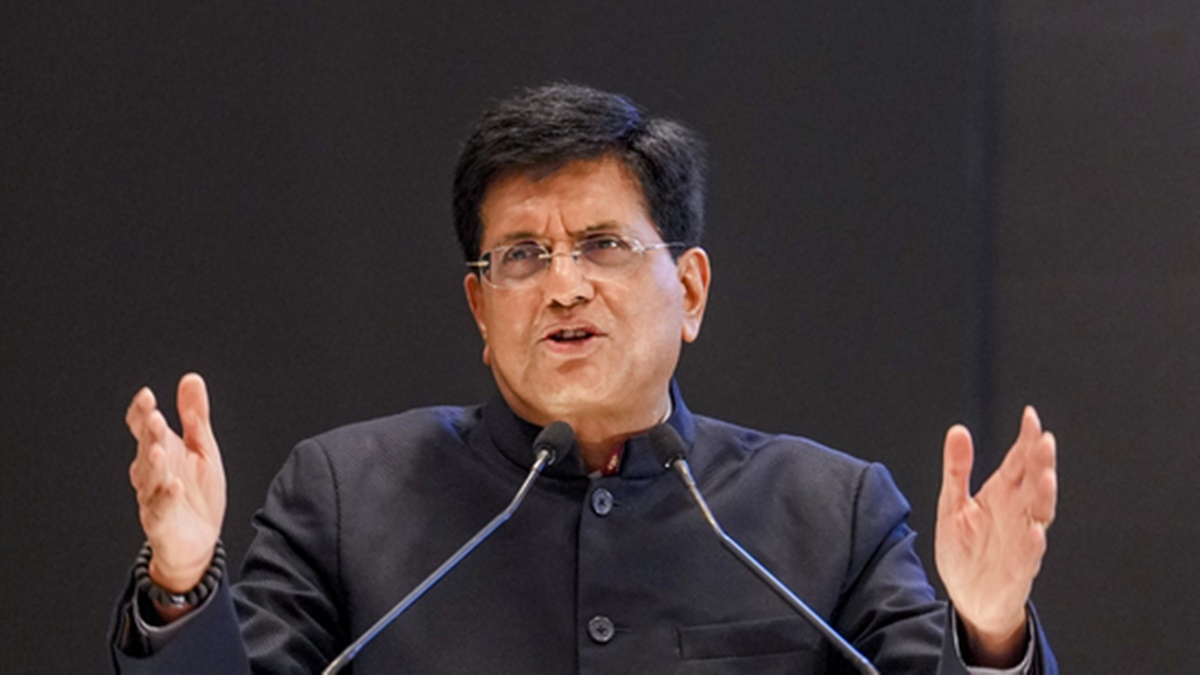Commerce and industry minister Piyush Goyal met European Commissioner for trade and economic security Marcos Sefcovic late on Friday, for the second time within a month, as both sides intensified their engagements to sign an interim trade deal by July.
The meeting in Brussels came just as negotiators from both sides wrapped up latest round of discussion on the trade agreement. The Indian team is led by additional secretary from the Department of commerce L Satya Srinivas.
Goyal travelled to Brussels on May 23 from Washington, where he held two back-to back meetings with US Commerce Secretary Howard Lutnick and negotiators and engaged in four days of meetings to work out the details of an interim trade agreement before the July 8 deadline for full imposition of reciprocal tariffs.
“We continue to make progress. Let us maintain the momentum — with hard work and clear focus — and I look forward to our next meeting soon,” Sefcovic posted on X after the meeting. “Let us keep this pace going. We remain committed to the shared prosperity of India and EU,” Goyal said in response to his EU counterpart’s post.
Before the meeting in Brussels, India and the EU had held 11th round of talks on the free trade agreement (FTA) from May 12 to May 16. “We are looking for an early harvest. We are trying to do it as early as possible..targeting by July for early harvest,” an official had said earlier this week.
Apart from the key issue of tariffs on goods, the interim pact will deal with issues of non-tariff barriers, government procurement and intellectual property rights, trade remedies, rules of origin, sanitary and phytosanitary measures.
These issues have been identified as core issues of the FTA by both sides. The trade agreement, otherwise, has 23 chapters that include issues like trade and sustainable development, transparency, good regulatory practices, subsidies and anti-fraud, among others.
The early harvest deal with the EU would be converted into a full-fledged FTA after further negotiations. In February-end European Commission’s (EC) president Ursula von der Leyen and a full college of commissioners had visited India for detailed talks on the entire spectrum of the relationship. At the meeting between EC President Narendra Modi, the year-end deadline to conclude the FTA was fixed.
Due to the tight deadline and time being taken to get to the common ground on non-core issues, both sides agreed to conclude the FTA in phases. Another push came from the change in the global trade environment after US President Donald Trump announced sweeping changes in tariffs, triggering uncertainty all across the world.
To cushion themselves against the disruptions of global trade war, the countries are speeding up agreements. The conclusion of India-UK trade talks early this month also gives a push to the negotiators and key issues involved on both these agreements are similar. In fact, during the earlier attempts at India-EU FTA talks, the UK became a negotiator as part of the 27-member group. However, following Brexit, the UK officially left the EU in 2020. Fresh discussions on FTA were conducted with the two in 2022.
India’s key asks from the EU in its negotiations include zero tariffs on labour intensive exports and greater access to the services market of 27-member grouping.
The EU has pushed India to cut tariffs on cheese and skimmed milk powder, which India currently imposes to protect its domestic dairy industry. Indian officials have maintained that they would be unwilling to provide concessions in dairy in any of the FTAs.
European winemakers are pushing for greater access to the Indian market, where imported wines currently face a 150% tariff. Car manufacturers want India to cut import duties on completely built-up (CBU) vehicles to 10-20%, down from the current 70%.
Similar issues have been tackled by India and UK in their FTA. India has agreed to slash the duties on whiskey and gin to 75% from 150%, while automotive tariffs will go from over 100% to 10% under a quota. India has got duty free access to 99% of its exports to the UK under the agreement. The EU is an important trading partner for India after the US. During April-February of last fiscal year, India’s exports to the EU stood at $ 69 billion, while imports were at $54.6 billion dollars.

